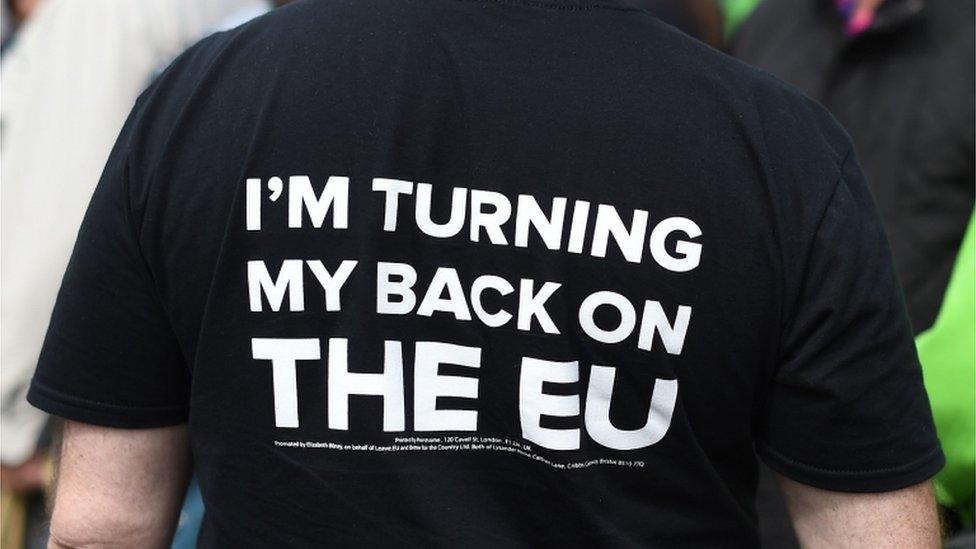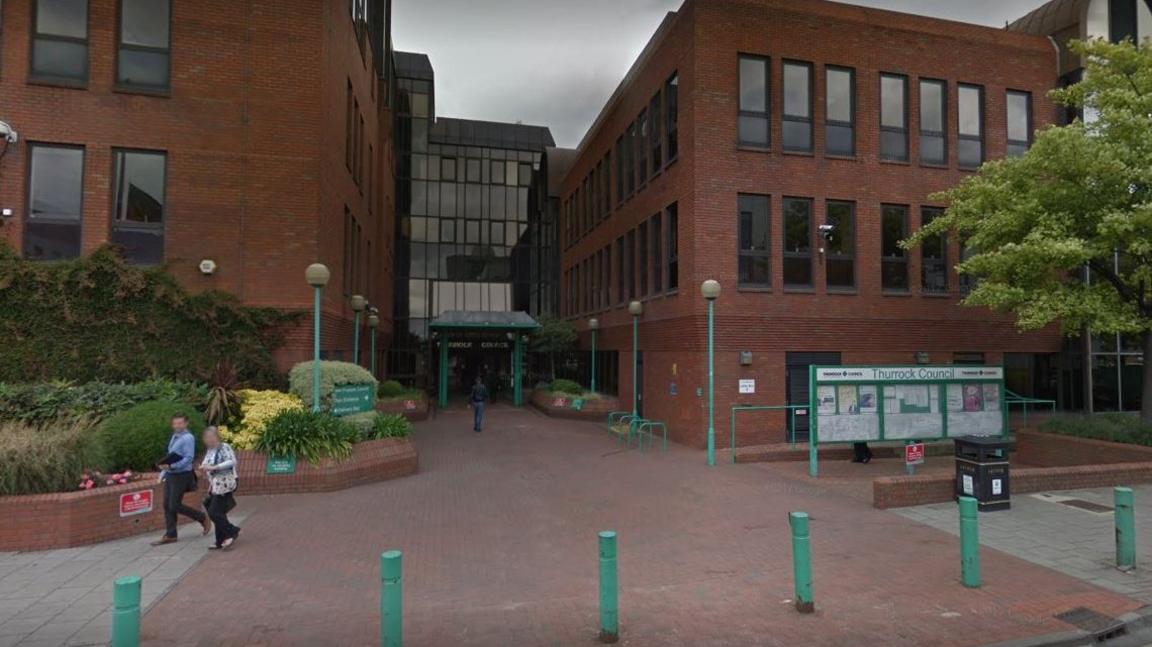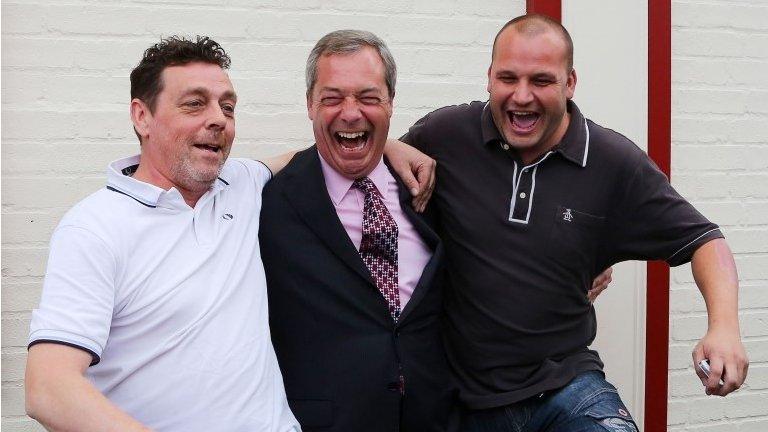UKIP facing 'difficult' local elections - Gerard Batten
- Published
- comments
Local elections: Batten 'confident' UKIP can retain seats
UKIP Leader Gerard Batten has admitted the party faces "difficult" local elections in England as it seeks to hang on to gains made four years ago.
He said the party is fighting for a "complete exit" from the EU at next Thursday's polls.
But it is fielding far fewer candidates than in 2014 when these seats were last fought.
On that day UKIP gained 161 councillors and topped the European elections held at the same time.
This time it is only fielding 540 candidates - compared with 2,193 in 2014.
Mr Batten, a long-serving UKIP MEP, took over as interim leader in February, after his predecessor Henry Bolton was ousted in a racism row and has pledged to do all he can to restore UKIP's fortunes.
The party broke through in to local government for the first time in 2014 and beat Labour and the Conservatives in the European Parliament - but its fortunes have been in decline since the 2016 EU referendum.
It suffered a funding crisis and was saved from insolvency by donations from members.
Mr Batten said earlier this month he had hoped to field 740 candidates in the local elections, to qualify for a Party Election Broadcast.
'Standing start'
But he told the BBC when he took over as leader "there was no local election campaign planned at all".
"I think success for us would be if we could hold on to our seats and if we could win a few more but it's going to be very difficult because we had to do it from a standing start.
"But we are confident we can retain our seats and also win a few more in some unusual places like Rochdale, for example, where we haven't had members previously."

UKIP has seen a drop in popularity since its victory in the EU Referendum
UKIP suffered big losses in local elections in England and Wales last year and former leader Paul Nuttall quit after the party performed poorly in the 2017 general election.
Of the 161 seats won in 2014, UKIP is now defending 126, following a series of defections, resignations and other changes.
The party says, external local elections are "also an opportunity to vote on national issues", including a "complete exit from the EU", an end to "mass uncontrolled immigration" and "an economy that works for all".
Mr Batten said Theresa May's approach to Brexit negotiations had been "completely wrong": "Instead of asking the EU how we may leave we should have been explaining to them how we are going to leave."
Mr Batten said the prime minister had been a "complete failure" at controlling immigration - which he said was not sustainable at current rates and brought housing pressures which put a strain on local government finances.
On housing, he said the party favoured building on brownfield sites and would explore the use of "prefabricated housing" "which has moved on a long way from what it was after the Second World War".
The manifesto also includes pledges to tackle crime and introduce more local referendums for "major decisions" like out of town supermarkets, wind turbines and incinerators.
- Published26 January 2018

- Published23 May 2014
